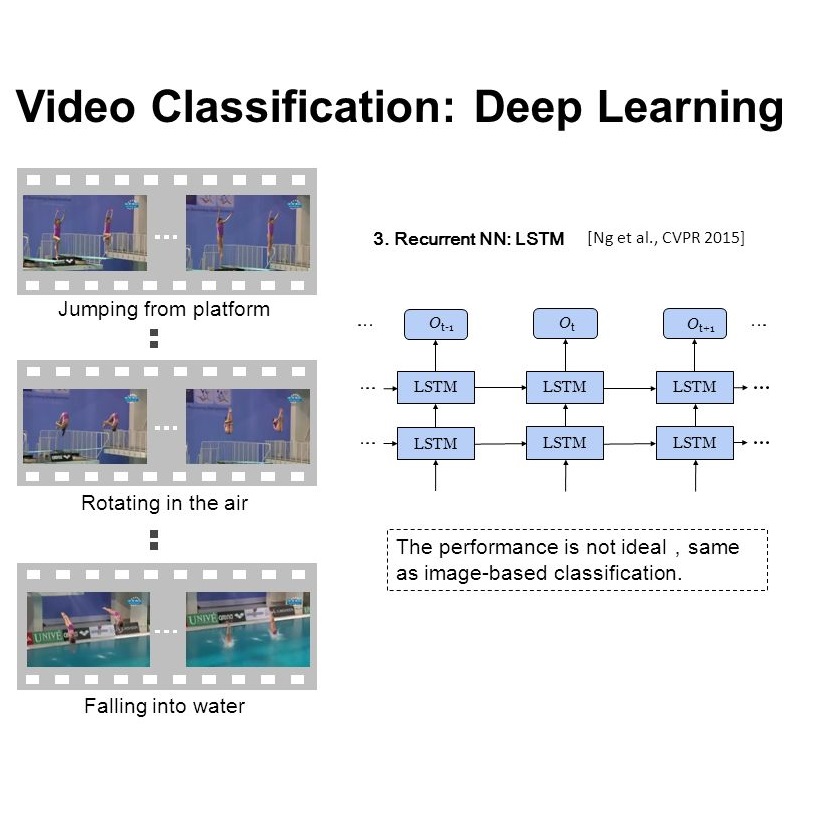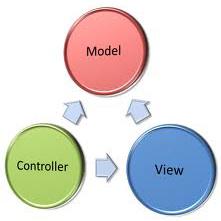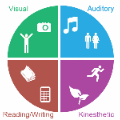This paper introduces a new challenge and datasets to foster research toward designing systems that can understand medical videos and provide visual answers to natural language questions. We believe medical videos may provide the best possible answers to many first aids, medical emergency, and medical education questions. Toward this, we created the MedVidCL and MedVidQA datasets and introduce the tasks of Medical Video Classification (MVC) and Medical Visual Answer Localization (MVAL), two tasks that focus on cross-modal (medical language and medical video) understanding. The proposed tasks and datasets have the potential to support the development of sophisticated downstream applications that can benefit the public and medical practitioners. Our datasets consist of 6,117 annotated videos for the MVC task and 3,010 annotated questions and answers timestamps from 899 videos for the MVAL task. These datasets have been verified and corrected by medical informatics experts. We have also benchmarked each task with the created MedVidCL and MedVidQA datasets and proposed the multimodal learning methods that set competitive baselines for future research.
相關內容
The medical conversational system can relieve the burden of doctors and improve the efficiency of healthcare, especially during the pandemic. This paper presents a medical conversational question answering (CQA) system based on the multi-modal knowledge graph, namely "LingYi", which is designed as a pipeline framework to maintain high flexibility. Our system utilizes automated medical procedures including medical triage, consultation, image-text drug recommendation and record. To conduct knowledge-grounded dialogues with patients, we first construct a Chinese Medical Multi-Modal Knowledge Graph (CM3KG) and collect a large-scale Chinese Medical CQA (CMCQA) dataset. Compared with the other existing medical question-answering systems, our system adopts several state-of-the-art technologies including medical entity disambiguation and medical dialogue generation, which is more friendly to provide medical services to patients. In addition, we have open-sourced our codes which contain back-end models and front-end web pages at //github.com/WENGSYX/LingYi. The datasets including CM3KG at //github.com/WENGSYX/CM3KG and CMCQA at //github.com/WENGSYX/CMCQA are also released to further promote future research.
The problem of Question Answering (QA) has attracted significant research interest for long. Its relevance to language understanding and knowledge retrieval tasks, along with the simple setting makes the task of QA crucial for strong AI systems. Recent success on simple QA tasks has shifted the focus to more complex settings. Among these, Multi-Hop QA (MHQA) is one of the most researched tasks over the recent years. The ability to answer multi-hop questions and perform multi step reasoning can significantly improve the utility of NLP systems. Consequently, the field has seen a sudden surge with high quality datasets, models and evaluation strategies. The notion of `multiple hops' is somewhat abstract which results in a large variety of tasks that require multi-hop reasoning. This implies that different datasets and models differ significantly which makes the field challenging to generalize and survey. This work aims to provide a general and formal definition of MHQA task, and organize and summarize existing MHQA frameworks. We also outline the best methods to create MHQA datasets. The paper provides a systematic and thorough introduction as well as the structuring of the existing attempts to this highly interesting, yet quite challenging task.
Expert finding has been well-studied in community question answering (QA) systems in various domains. However, none of these studies addresses expert finding in the legal domain, where the goal is for citizens to find lawyers based on their expertise. In the legal domain, there is a large knowledge gap between the experts and the searchers, and the content on the legal QA websites consist of a combination formal and informal communication. In this paper, we propose methods for generating query-dependent textual profiles for lawyers covering several aspects including sentiment, comments, and recency. We combine query-dependent profiles with existing expert finding methods. Our experiments are conducted on a novel dataset gathered from an online legal QA service. We discovered that taking into account different lawyer profile aspects improves the best baseline model. We make our dataset publicly available for future work.
Knowledge base question answering (KBQA) aims to answer a question over a knowledge base (KB). Early studies mainly focused on answering simple questions over KBs and achieved great success. However, their performance on complex questions is still far from satisfactory. Therefore, in recent years, researchers propose a large number of novel methods, which looked into the challenges of answering complex questions. In this survey, we review recent advances on KBQA with the focus on solving complex questions, which usually contain multiple subjects, express compound relations, or involve numerical operations. In detail, we begin with introducing the complex KBQA task and relevant background. Then, we describe benchmark datasets for complex KBQA task and introduce the construction process of these datasets. Next, we present two mainstream categories of methods for complex KBQA, namely semantic parsing-based (SP-based) methods and information retrieval-based (IR-based) methods. Specifically, we illustrate their procedures with flow designs and discuss their major differences and similarities. After that, we summarize the challenges that these two categories of methods encounter when answering complex questions, and explicate advanced solutions and techniques used in existing work. Finally, we conclude and discuss several promising directions related to complex KBQA for future research.
Biomedical Question Answering (BQA) has attracted increasing attention in recent years due to its promising application prospect. It is a challenging task because the biomedical questions are professional and usually vary widely. Existing question answering methods answer all questions with a homogeneous model, leading to various types of questions competing for the shared parameters, which will confuse the model decision for each single type of questions. In this paper, in order to alleviate the parameter competition problem, we propose a Mixture-of-Expert (MoE) based question answering method called MoEBQA that decouples the computation for different types of questions by sparse routing. To be specific, we split a pretrained Transformer model into bottom and top blocks. The bottom blocks are shared by all the examples, aiming to capture the general features. The top blocks are extended to an MoE version that consists of a series of independent experts, where each example is assigned to a few experts according to its underlying question type. MoEBQA automatically learns the routing strategy in an end-to-end manner so that each expert tends to deal with the question types it is expert in. We evaluate MoEBQA on three BQA datasets constructed based on real examinations. The results show that our MoE extension significantly boosts the performance of question answering models and achieves new state-of-the-art performance. In addition, we elaborately analyze our MoE modules to reveal how MoEBQA works and find that it can automatically group the questions into human-readable clusters.
Video question answering requires the models to understand and reason about both the complex video and language data to correctly derive the answers. Existing efforts have been focused on designing sophisticated cross-modal interactions to fuse the information from two modalities, while encoding the video and question holistically as frame and word sequences. Despite their success, these methods are essentially revolving around the sequential nature of video- and question-contents, providing little insight to the problem of question-answering and lacking interpretability as well. In this work, we argue that while video is presented in frame sequence, the visual elements (e.g., objects, actions, activities and events) are not sequential but rather hierarchical in semantic space. To align with the multi-granular essence of linguistic concepts in language queries, we propose to model video as a conditional graph hierarchy which weaves together visual facts of different granularity in a level-wise manner, with the guidance of corresponding textual cues. Despite the simplicity, our extensive experiments demonstrate the superiority of such conditional hierarchical graph architecture, with clear performance improvements over prior methods and also better generalization across different type of questions. Further analyses also demonstrate the model's reliability as it shows meaningful visual-textual evidences for the predicted answers.
This paper introduces QAConv, a new question answering (QA) dataset that uses conversations as a knowledge source. We focus on informative conversations, including business emails, panel discussions, and work channels. Unlike open-domain and task-oriented dialogues, these conversations are usually long, complex, asynchronous, and involve strong domain knowledge. In total, we collect 34,608 QA pairs from 10,259 selected conversations with both human-written and machine-generated questions. We use a question generator and a dialogue summarizer as auxiliary tools to collect and recommend questions. The dataset has two testing scenarios: chunk mode and full mode, depending on whether the grounded partial conversation is provided or retrieved. Experimental results show that state-of-the-art pretrained QA systems have limited zero-shot performance and tend to predict our questions as unanswerable. Our dataset provides a new training and evaluation testbed to facilitate QA on conversations research.
Medical Visual Question Answering (VQA) is a combination of medical artificial intelligence and popular VQA challenges. Given a medical image and a clinically relevant question in natural language, the medical VQA system is expected to predict a plausible and convincing answer. Although the general-domain VQA has been extensively studied, the medical VQA still needs specific investigation and exploration due to its task features. In the first part of this survey, we cover and discuss the publicly available medical VQA datasets up to date about the data source, data quantity, and task feature. In the second part, we review the approaches used in medical VQA tasks. In the last part, we analyze some medical-specific challenges for the field and discuss future research directions.
Neural network models usually suffer from the challenge of incorporating commonsense knowledge into the open-domain dialogue systems. In this paper, we propose a novel knowledge-aware dialogue generation model (called TransDG), which transfers question representation and knowledge matching abilities from knowledge base question answering (KBQA) task to facilitate the utterance understanding and factual knowledge selection for dialogue generation. In addition, we propose a response guiding attention and a multi-step decoding strategy to steer our model to focus on relevant features for response generation. Experiments on two benchmark datasets demonstrate that our model has robust superiority over compared methods in generating informative and fluent dialogues. Our code is available at //github.com/siat-nlp/TransDG.
With the rise of knowledge graph (KG), question answering over knowledge base (KBQA) has attracted increasing attention in recent years. Despite much research has been conducted on this topic, it is still challenging to apply KBQA technology in industry because business knowledge and real-world questions can be rather complicated. In this paper, we present AliMe-KBQA, a bold attempt to apply KBQA in the E-commerce customer service field. To handle real knowledge and questions, we extend the classic "subject-predicate-object (SPO)" structure with property hierarchy, key-value structure and compound value type (CVT), and enhance traditional KBQA with constraints recognition and reasoning ability. We launch AliMe-KBQA in the Marketing Promotion scenario for merchants during the "Double 11" period in 2018 and other such promotional events afterwards. Online results suggest that AliMe-KBQA is not only able to gain better resolution and improve customer satisfaction, but also becomes the preferred knowledge management method by business knowledge staffs since it offers a more convenient and efficient management experience.





